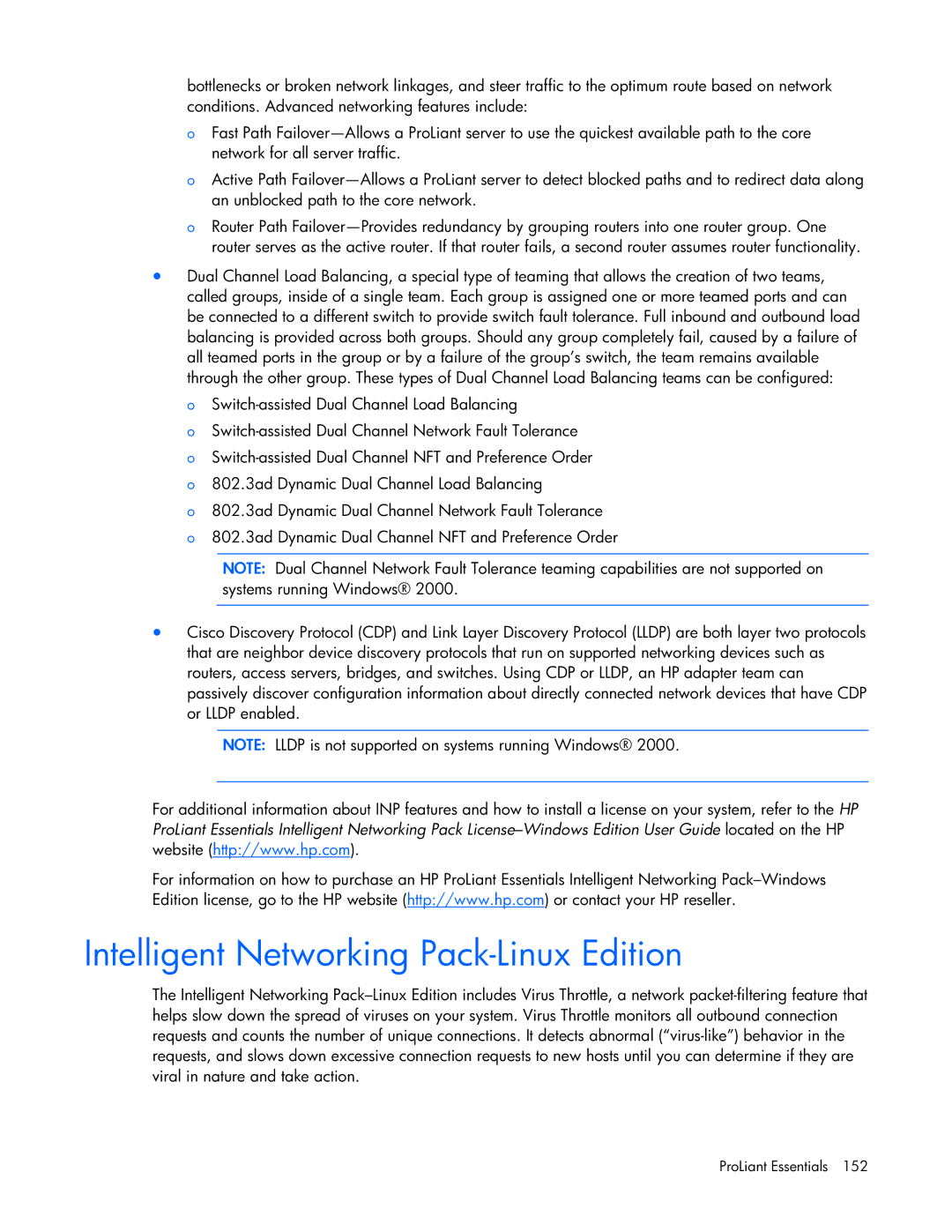
bottlenecks or broken network linkages, and steer traffic to the optimum route based on network conditions. Advanced networking features include:
oFast Path
oActive Path
oRouter Path
•Dual Channel Load Balancing, a special type of teaming that allows the creation of two teams, called groups, inside of a single team. Each group is assigned one or more teamed ports and can be connected to a different switch to provide switch fault tolerance. Full inbound and outbound load balancing is provided across both groups. Should any group completely fail, caused by a failure of all teamed ports in the group or by a failure of the group’s switch, the team remains available through the other group. These types of Dual Channel Load Balancing teams can be configured:
o
o
o
o802.3ad Dynamic Dual Channel Load Balancing
o802.3ad Dynamic Dual Channel Network Fault Tolerance
o802.3ad Dynamic Dual Channel NFT and Preference Order
NOTE: Dual Channel Network Fault Tolerance teaming capabilities are not supported on systems running Windows® 2000.
•Cisco Discovery Protocol (CDP) and Link Layer Discovery Protocol (LLDP) are both layer two protocols that are neighbor device discovery protocols that run on supported networking devices such as routers, access servers, bridges, and switches. Using CDP or LLDP, an HP adapter team can passively discover configuration information about directly connected network devices that have CDP or LLDP enabled.
NOTE: LLDP is not supported on systems running Windows® 2000.
For additional information about INP features and how to install a license on your system, refer to the HP ProLiant Essentials Intelligent Networking Pack
For information on how to purchase an HP ProLiant Essentials Intelligent Networking
Intelligent Networking Pack-Linux Edition
The Intelligent Networking
ProLiant Essentials 152
